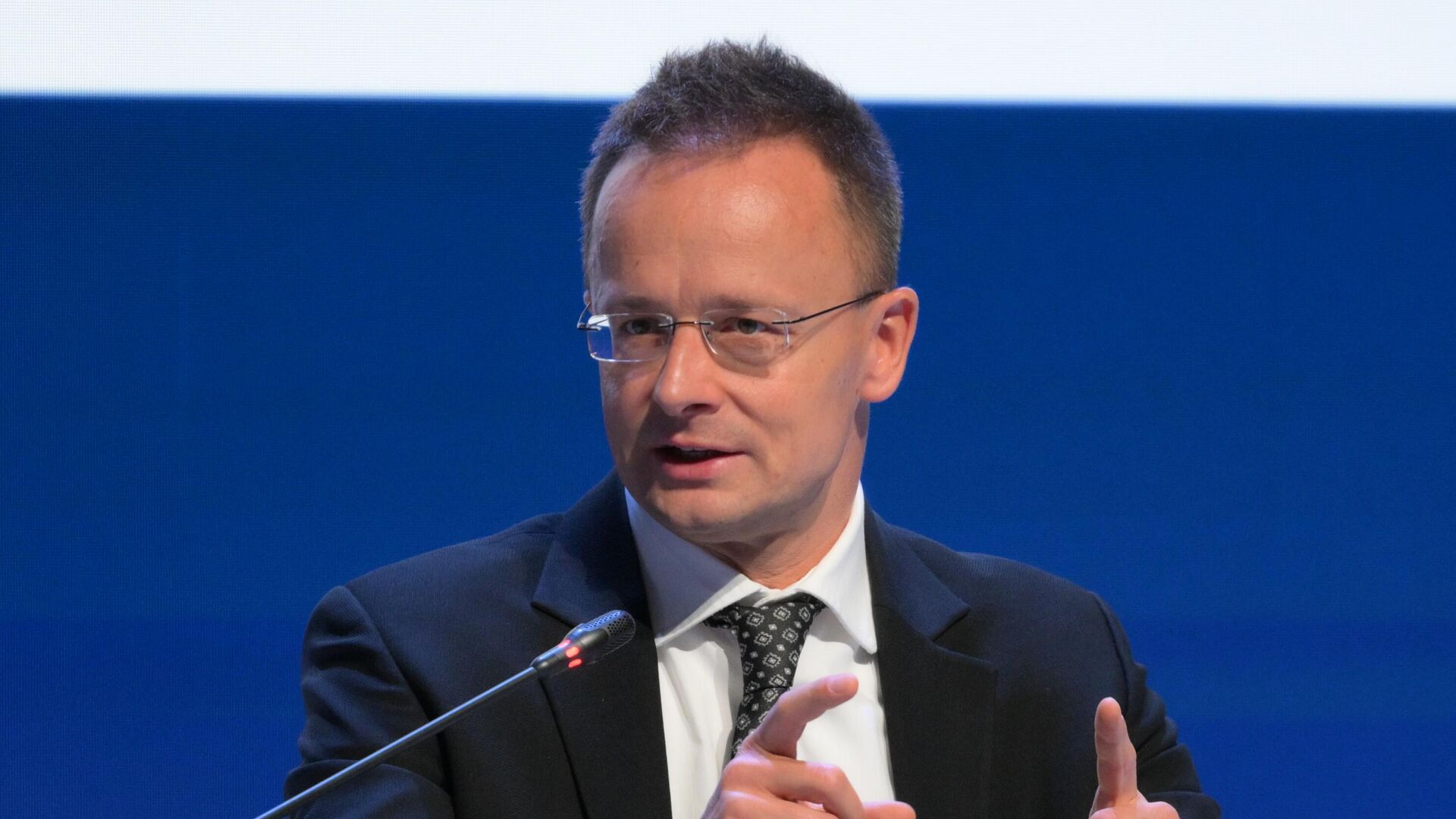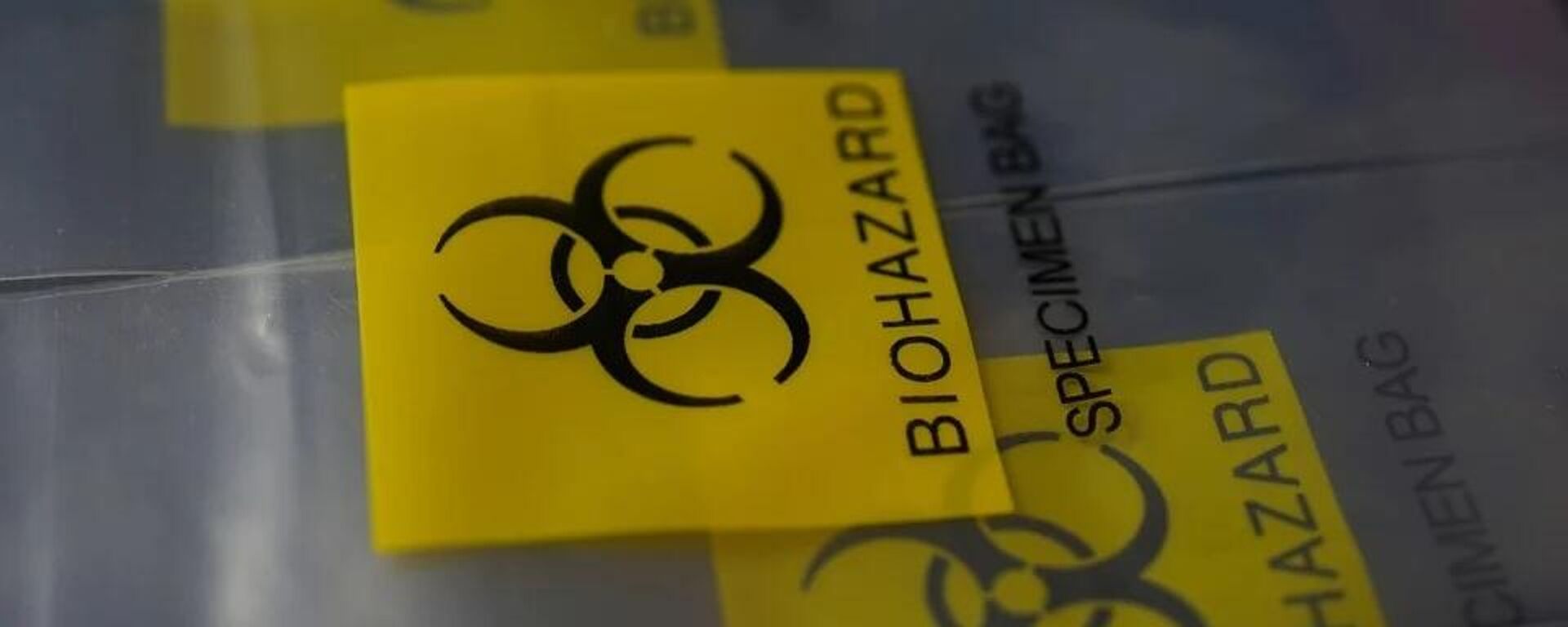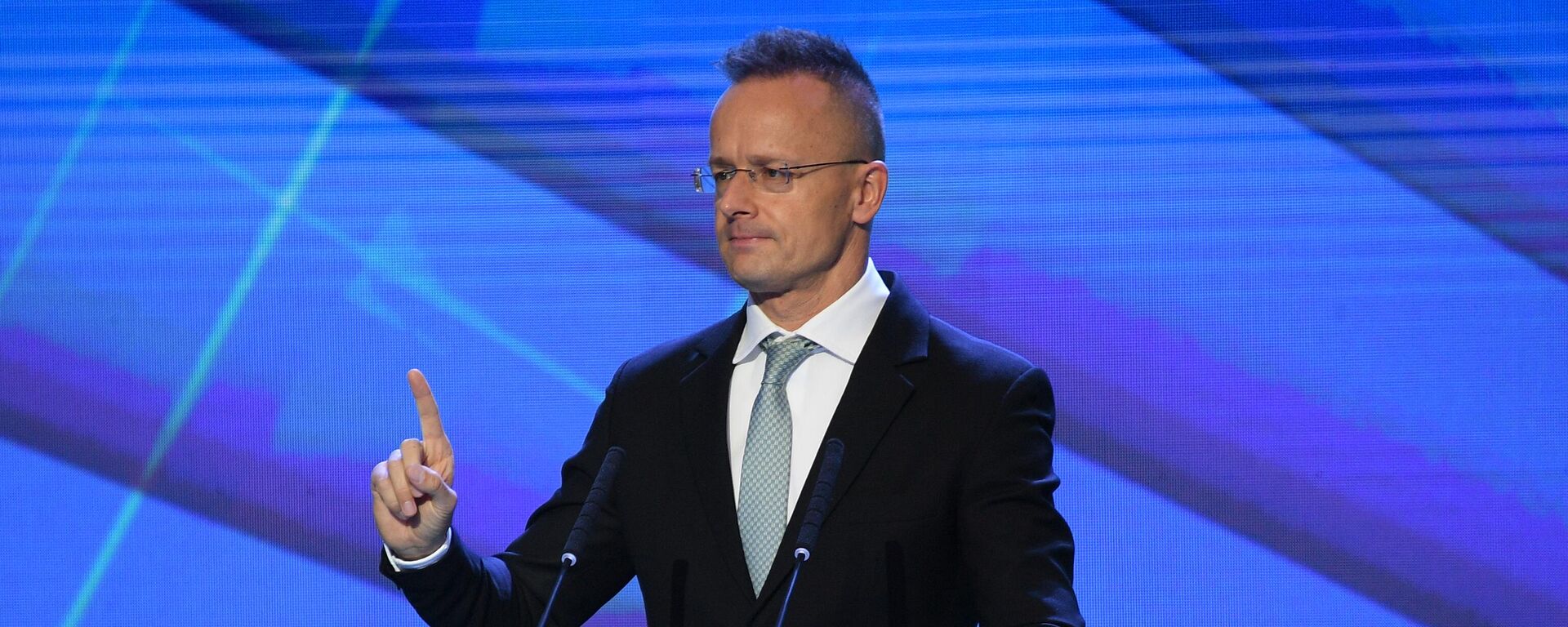Hungary Still Ready to Host Peace Negotiations on Ukraine - Szijjarto
04:37 GMT 21.12.2024 (Updated: 08:52 GMT 21.12.2024)

© Sputnik / Alexei Danichev
/ Subscribe
UNITED NATIONS (Sputnik) – Hungarian top diplomat Peter Szijjarto gave extensive interview to Ria Novosti and commented on most acute issues of global politics.
Budapest stands ready to provide a venue for possible peace negotiations on Ukraine, Hungary Foreign Minister Peter Szijjarto told RIA Novosti.
"We are ready, so it was like two-three days after the war had broken out when I called Foreign Minister Lavrov and head of the presidential administration in Ukraine Andriy Yermak, and I told both of them that Hungary is ready to host any kind of peace negotiations," Szijjarto said.
He promised that his country would offer everyone a safe, fair level playing field.
"The offer has been on the table. So if somebody would like to take it, [they] can take it. So we are still ready, but you don't make this proposal on many occasions, you make it once, and since it's not withdrawn, it's still there," Szijjarto said.
US Political Revenge Against Hungary
The United States' decision not to exempt Russian-built Paks II nuclear power plant from sanctions on Gazprombank constitutes an act of "political revenge" against Hungary, Hungarian Foreign Minister said.
In November, the US imposed sanctions on Gazprombank and six of its foreign subsidiaries. On Wednesday, the US Treasury issued a general license authorizing transactions with Gazprombank related to civil nuclear energy through June 30, while excluding transactions related to Paks II.
"They were absolutely aware what kind of impacts they caused with such a decision in some central European and southeast European countries. It's so obvious, and the fact that deliberately, they have not given the waiver for Gazprom when it comes to Paks II, shows that they try to make a political revenge just because we have always represented a patriotic, sovereignistic political strategy," Szijjarto said.
The current US administration "cannot digest" that the Hungarian government serves national interests and therefore seeks to cut its energy cooperation with Russia, the minister said.
Szijjarto called US sanctions on Gazprombank a "concerning" and "clearly politically motivated decision" by the United States.
Hungary is working to find a way on how to pay Russian state nuclear corporation Rosatom for the construction of the Paks II nuclear power plant in the wake of US restrictions but expects to find a solution, Hungarian Foreign Minister Peter Szijjarto told RIA Novosti.
In November, the US imposed sanctions on Gazprombank and six of its foreign subsidiaries. On Wednesday, the US Treasury issued a general license authorizing transactions with Gazprombank related to civil nuclear energy through June 30, while excluding transactions related to Paks II.
"We are working on it with Rosatom, how to do that. I'm pretty sure we will find some legal solutions for that," Szijjarto said regarding payment issues.
He noted that when it comes to gas payments, Budapest has found an alternative financial mechanism for that.
"As we have found the legal solutions for the payments for gas, we have the alternative financial way for that, which we don't have to use for a while, because now Gazprombank got a three month long waiver from the Americans to be involved in financial transactions in relationship to gas," Szijjarto said.
The minister added that despite the sanctions, Hungary will continue looking into ways to pay for the NPP construction.
"We can stay with the already existing pipeline, financial pipeline, but in case there's a change in this regard, we already have constructed the alternative way of payment when it comes to gas and when it comes to nuclear fuel as well. When it comes to the construction of the new nuclear power plant, we still have to work on the legal solution, we have some options, and we will finalize one of those," Szijjarto concluded.

Kiev Killed Kirillov For Exposing West’s Hand, Dirty Money in Ukraine Biolab Scheme - Ex-CIA Officer
18 December 2024, 08:22 GMT
On Russian Chem Defense Chief Assasination
The terrorist attack that killed Russian chemical defense chief Lt. Gen. Igor Kirillov causes concern and risks escalation, Hungarian Foreign Minister Peter Szijjarto told RIA Novosti.
"Since we want peace to come in Ukraine, since we want to avoid any risk of escalation, we look at all these issues as matters of concern. Why? Because all such kind of moves come forward with the risk of escalation," Szijjarto said.
Szijjarto warned that if escalation occurs before US President-elect Donald Trump’s inauguration on January 20, it could have a "very negative impact" on a chance to "make peace as soon as possible" after that date.
Kirillov and his aide were killed in Moscow early on Tuesday by a bomb hidden in an electric scooter. An official with Ukraine's security service SBU confirmed to The New York Times that Ukraine was responsible for the assassination.
On Wednesday morning, Russia's Federal Security Service said it had arrested the perpetrator of the terrorist attack, Uzbek national Akhmad Kurbanov. Kurbanov said he had been recruited by Ukrainian security services who promised $100,000 and a resettlement in a EU country in exchange for the killing.
Chance for Peace in Ukraine After Trump Inauguration 'Bigger Than Ever'
US President-elect Donald Trump's inauguration in January could open a historic opportunity to achieve peace in Ukraine, Hungarian Foreign Minister Peter Szijjarto told RIA Novosti.
"From now on, as President Trump is taking office, I think a chance for a peace agreement will be bigger than ever. The question is whether the Democrat administration and the Western European pro-war politicians make something until the 20th of January which would make it very complicated or impossible to make a quick pro peace process," Szijjarto said in an interview.
The minister referred to decisions that have been made "on both sides of the ocean" after the November 5 election and carry a "huge risk of escalation," such as allowing Kiev to use long-range missiles to strike deep into Russia and pushing the Ukrainians to lower the draft age to 18.
No Peacekeepers in Ukraine
Discussions about a possible deployment of peacekeepers to Ukraine are premature at the moment as a ceasefire and peace agreement should be achieved in the first place, Hungarian Foreign Minister Peter Szijjarto told RIA Novosti.
"I think that that's all about the future, so sequencing is very important. First, we have to create ceasefire, then start peace negotiations and come to a peace agreement, and whatever is enshrined in such a peace agreement should be done accordingly, so whether to send peacekeepers or not, to make a serious opinion on that now is totally impossible," Szijjarto said in an interview.


